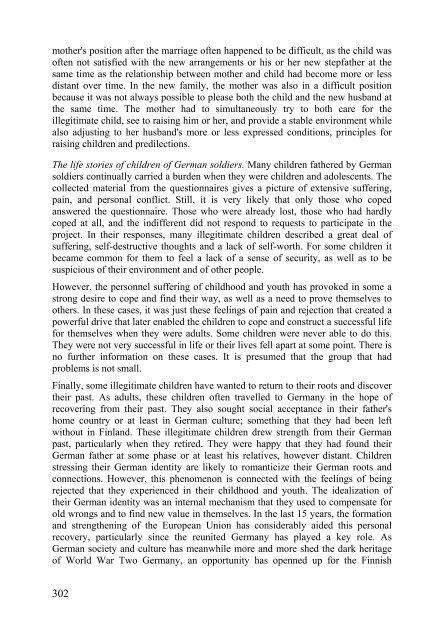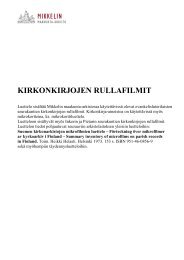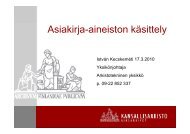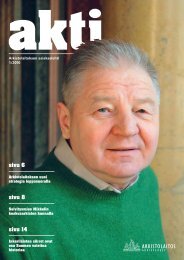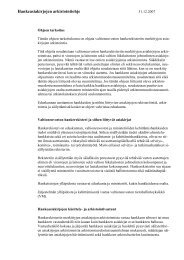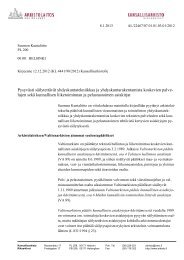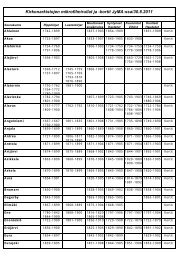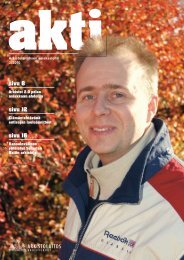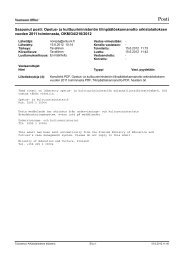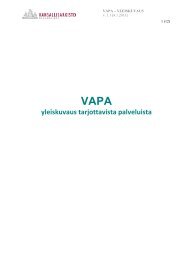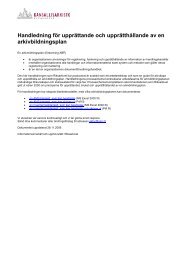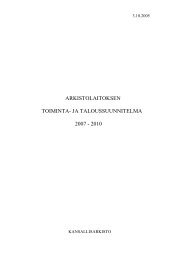Saksalaisten sotilaiden lapset. Ulkomaalaisten sotilaiden lapset ...
Saksalaisten sotilaiden lapset. Ulkomaalaisten sotilaiden lapset ...
Saksalaisten sotilaiden lapset. Ulkomaalaisten sotilaiden lapset ...
You also want an ePaper? Increase the reach of your titles
YUMPU automatically turns print PDFs into web optimized ePapers that Google loves.
mother's position after the marriage often happened to be difficult, as the child was<br />
often not satisfied with the new arrangements or his or her new stepfather at the<br />
same time as the relationship between mother and child had become more or less<br />
distant over time. In the new family, the mother was also in a difficult position<br />
because it was not always possible to please both the child and the new husband at<br />
the same time. The mother had to simultaneously try to both care for the<br />
illegitimate child, see to raising him or her, and provide a stable environment while<br />
also adjusting to her husband's more or less expressed conditions, principles for<br />
raising children and predilections.<br />
The life stories of children of German soldiers. Many children fathered by German<br />
soldiers continually carried a burden when they were children and adolescents. The<br />
collected material from the questionnaires gives a picture of extensive suffering,<br />
pain, and personal conflict. Still, it is very likely that only those who coped<br />
answered the questionnaire. Those who were already lost, those who had hardly<br />
coped at all, and the indifferent did not respond to requests to participate in the<br />
project. In their responses, many illegitimate children described a great deal of<br />
suffering, self-destructive thoughts and a lack of self-worth. For some children it<br />
became common for them to feel a lack of a sense of security, as well as to be<br />
suspicious of their environment and of other people.<br />
However, the personnel suffering of childhood and youth has provoked in some a<br />
strong desire to cope and find their way, as well as a need to prove themselves to<br />
others. In these cases, it was just these feelings of pain and rejection that created a<br />
powerful drive that later enabled the children to cope and construct a successful life<br />
for themselves when they were adults. Some children were never able to do this.<br />
They were not very successful in life or their lives fell apart at some point. There is<br />
no further information on these cases. It is presumed that the group that had<br />
problems is not small.<br />
Finally, some illegitimate children have wanted to return to their roots and discover<br />
their past. As adults, these children often travelled to Germany in the hope of<br />
recovering from their past. They also sought social acceptance in their father's<br />
home country or at least in German culture; something that they had been left<br />
without in Finland. These illegitimate children drew strength from their German<br />
past, particularly when they retired. They were happy that they had found their<br />
German father at some phase or at least his relatives, however distant. Children<br />
stressing their German identity are likely to romanticize their German roots and<br />
connections. However, this phenomenon is connected with the feelings of being<br />
rejected that they experienced in their childhood and youth. The idealization of<br />
their German identity was an internal mechanism that they used to compensate for<br />
old wrongs and to find new value in themselves. In the last 15 years, the formation<br />
and strengthening of the European Union has considerably aided this personal<br />
recovery, particularly since the reunited Germany has played a key role. As<br />
German society and culture has meanwhile more and more shed the dark heritage<br />
of World War Two Germany, an opportunity has openned up for the Finnish<br />
302


